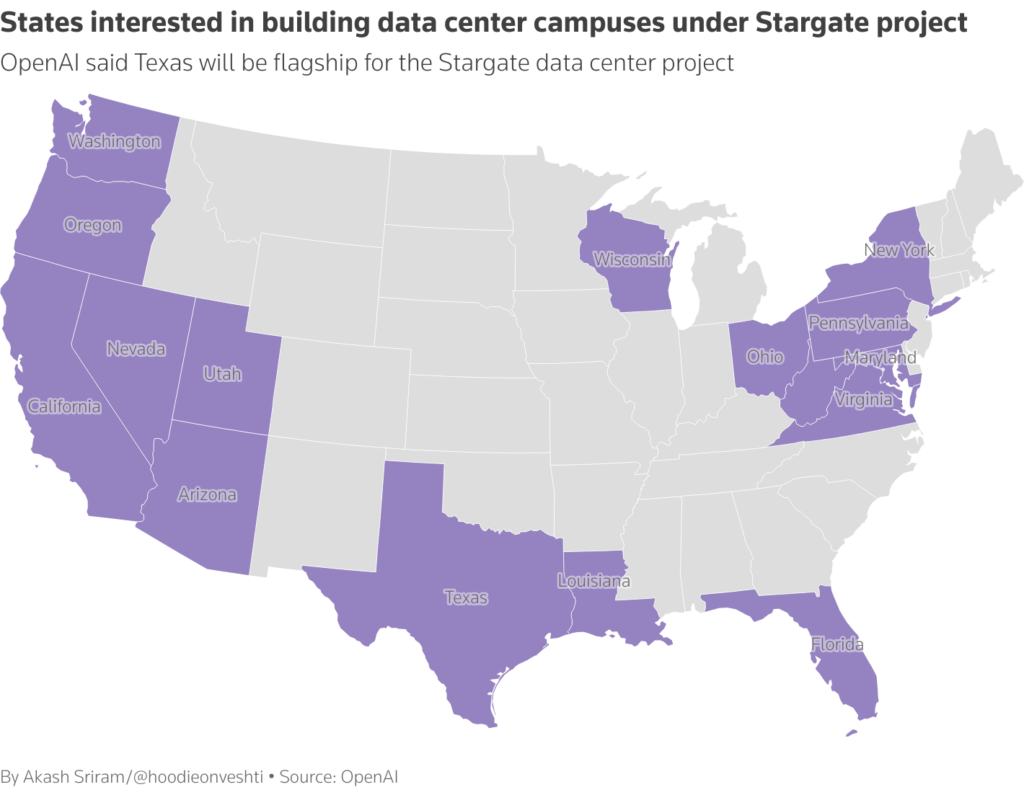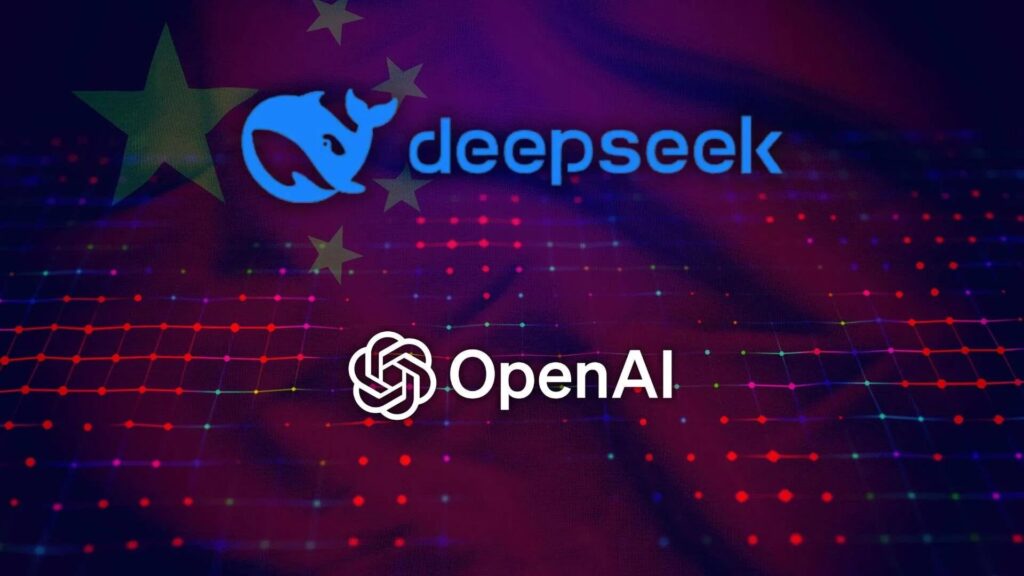|
Getting your Trinity Audio player ready...
|
OpenAI’s ambitious Stargate project—a massive AI infrastructure initiative—has taken center stage in the ongoing battle between the United States and China for AI supremacy. The project, backed by $500 billion in private sector investment, aims to build state-of-the-art AI data centers across multiple U.S. states.
However, just days after former U.S. President Donald Trump announced Stargate, China’s DeepSeek AI model shook the industry by demonstrating that cutting-edge AI can be developed at a fraction of the cost, potentially undermining the rationale for large-scale AI infrastructure investments.
With national security, economic dominance, and technological innovation on the line, OpenAI and its partners—including SoftBank, Oracle, and Crusoe—are racing to solidify the U.S. as the global leader in AI development.
Stargate: A $500 Billion AI Bet
Last month, OpenAI, along with SoftBank (9984.T) and Oracle (ORCL.N), pledged an initial $100 billion investment into Stargate, with a four-year roadmap to reach $500 billion. The project’s first “flagship” data center is already under construction in Abilene, Texas, led by the San Francisco-based startup Crusoe.
According to OpenAI’s chief global affairs officer, Chris Lehane, around 16 states have expressed interest in hosting Stargate’s AI infrastructure. The final plan could include five to ten campus-style data center locations, with Texas leading the charge.
Lehane emphasized the urgency of the project, stating:
“Whoever ends up prevailing in this competition is going to really shape what the world looks like going forward—whether we have democratic AI that’s free and open, or authoritarian AI that is autocratic.”
DeepSeek’s Disruptive Emergence
Just as OpenAI and its partners were laying out their grand AI investment blueprint, China’s DeepSeek AI model emerged, throwing a wrench into the conventional belief that AI progress depends on massive, resource-intensive data centers.
DeepSeek’s researchers claim that one of their latest models was trained using less sophisticated chips, at a fraction of the cost of American AI models. If true, this could dramatically shift the AI development landscape, allowing smaller players—and even governments with limited resources—to compete at the highest levels of AI innovation.
DeepSeek’s emergence triggered a global investor sell-off in tech stocks, particularly affecting Nvidia (NVDA.O), the world’s leading AI chip manufacturer. On a single day, Nvidia lost $593 billion in market value, marking the largest one-day loss in Wall Street history.
This market shock raised concerns that AI hardware investments—such as the high-performance computing power driving Stargate—could become obsolete faster than expected. If AI breakthroughs continue reducing dependency on expensive infrastructure, investors may rethink the long-term value of AI data centers.




